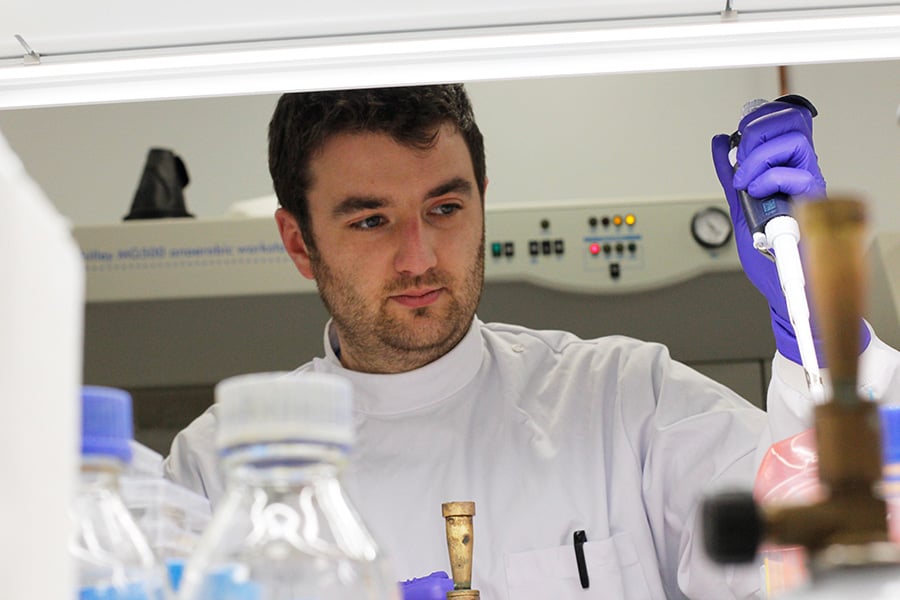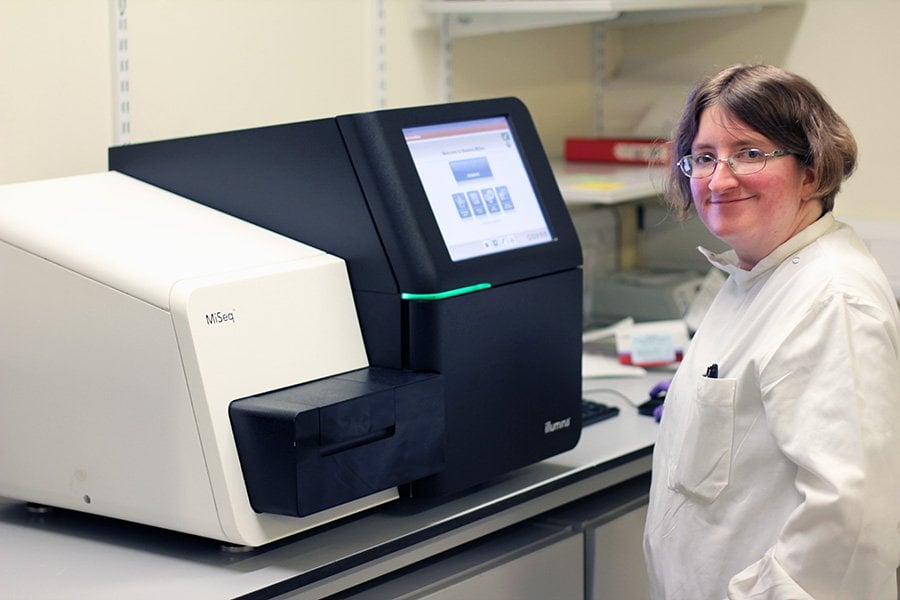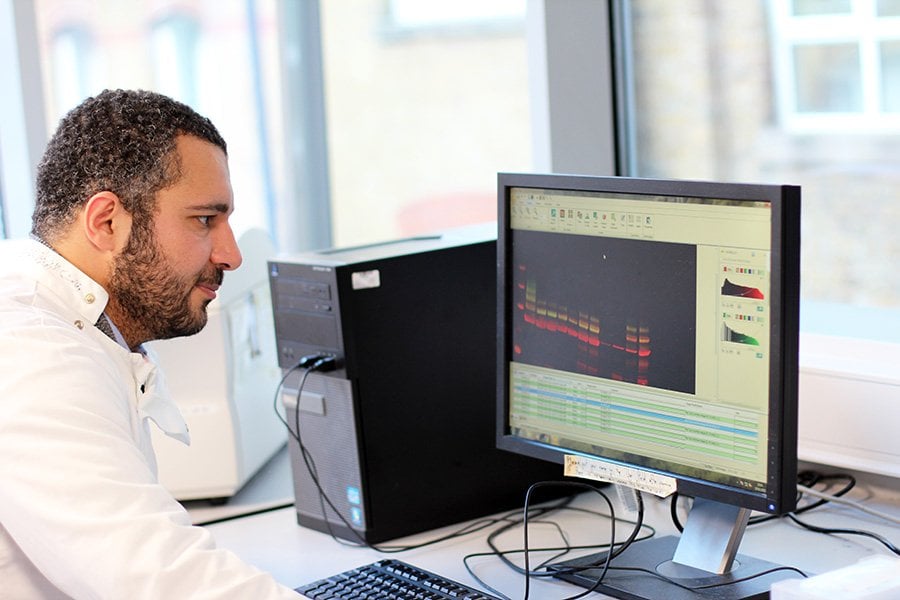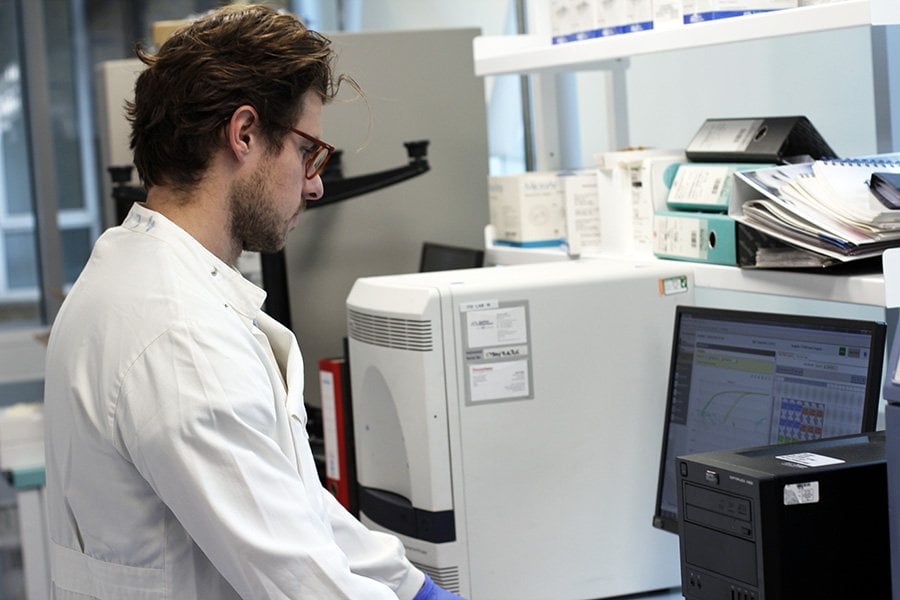Our state-of-the-art Bacteriology Research Laboratories meet the demands of globally competitive research challenges in the areas of genomics, recombinant protein production, glycoengineering, and advanced cell and molecular biology.
The overarching aim of the resources is to provide:
- Research and teaching support
- Training for staff and students
- Technical expertise
The teams housed in the bacteriology laboratories conduct cutting-edge research in discovery and translational science using industry-leading technologies. This is to address pressing questions in infection biology and ultimately develop (or engineer) novel tools to produce cost-effective therapeutics.
Mission
The mission of the resources aligns with the LSHTM strategy to:
- Serve the staff and students at LSHTM and beyond
- Benefit the national and international research community
- Contribute to humanity as we work together to improve health worldwide
Genome Sequencing Facility
The Genome Sequence Facility is open to all staff and students within the Faculty of Infectious and Tropical Diseases. It operates the Illumina MiSeq system whilst leveraging the high throughput capabilities of the Oxford nanopore MinION platform system. Both platforms offer a wide range of cutting-edge sequencing options compatible with diverse types of projects.
The facility operates in conjunction with our bioinformaticians, allowing staff and students to collaborate and receive support for sequence data analysis.
Protein Glycoengineering Resources
The Protein Glycoengineering Resources offers cutting-edge tools designed for improved glycoprotein expression in bacterial cells. The purpose-built facilities provide instruments allowing rapid (glyco)protein purification and sensitive recombinant glycoproteins characterisation.
- Protein expression
- We have various optimised bacterial strains, cloning and expression vectors including CRISPR-Cas9 vectors. Our equipment for optimised culturing of bacteria include:
- New Brunswick Innova 44
- Applikon automated bioreactor
- We have various optimised bacterial strains, cloning and expression vectors including CRISPR-Cas9 vectors. Our equipment for optimised culturing of bacteria include:
- Protein purification
- We have high performance cell homogenisation and automated liquid chromatography systems that simplify the transition from laboratory to pilot-scale recombinant protein and vaccine production.
- Stansted High Pressure Cell Disrupter; Optima XPN_90 Ultracentrifuge
- AKTA go liquid chromatography system
- AKTA fast protein liquid chromatography
- FreeZone 2.5 L-84°C Freeze Dryer
- We have high performance cell homogenisation and automated liquid chromatography systems that simplify the transition from laboratory to pilot-scale recombinant protein and vaccine production.
- Protein imaging
- We have sensitive and robust imagers for the capture and analysis of high-resolution digital images of protein and DNA samples in membranes and gels. These multipurpose imagers bring high-performance imaging to chemiluminescence, fluorescence, and colorimetric applications.
- Li-Cor Odyssey
- Azure C600 imaging system
- ChemiDoc MP imaging system
- We have sensitive and robust imagers for the capture and analysis of high-resolution digital images of protein and DNA samples in membranes and gels. These multipurpose imagers bring high-performance imaging to chemiluminescence, fluorescence, and colorimetric applications.
Advanced Cell and Molecular Biology Resources
The Advanced cell and Molecular Biology Resources provides high-end research tools and instrumentations. We have various eukaryotic cell lines (human, animal, and amoebae) that can be shared with internal and external researchers on a collaborative basis. Our dedicated molecular biology equipment provides versatile and flexible tools for the generation of advanced gene modifications.
- Gene Pulser Xcell modular electroporation system
- M220 Focused-ultrasonicator; FB120 Sonic Dismembrator
- G: BOX F3 gel doc system
- 2100 Bioanalyser; Qubit 4 Fluorometer; Nanodrop
- Applied Biosystems 7500 Fast Real-Time PCR System; QuantStudio 7 Real-Time PCR System (suitable for SYBR Green and TaqMan chemistry)



